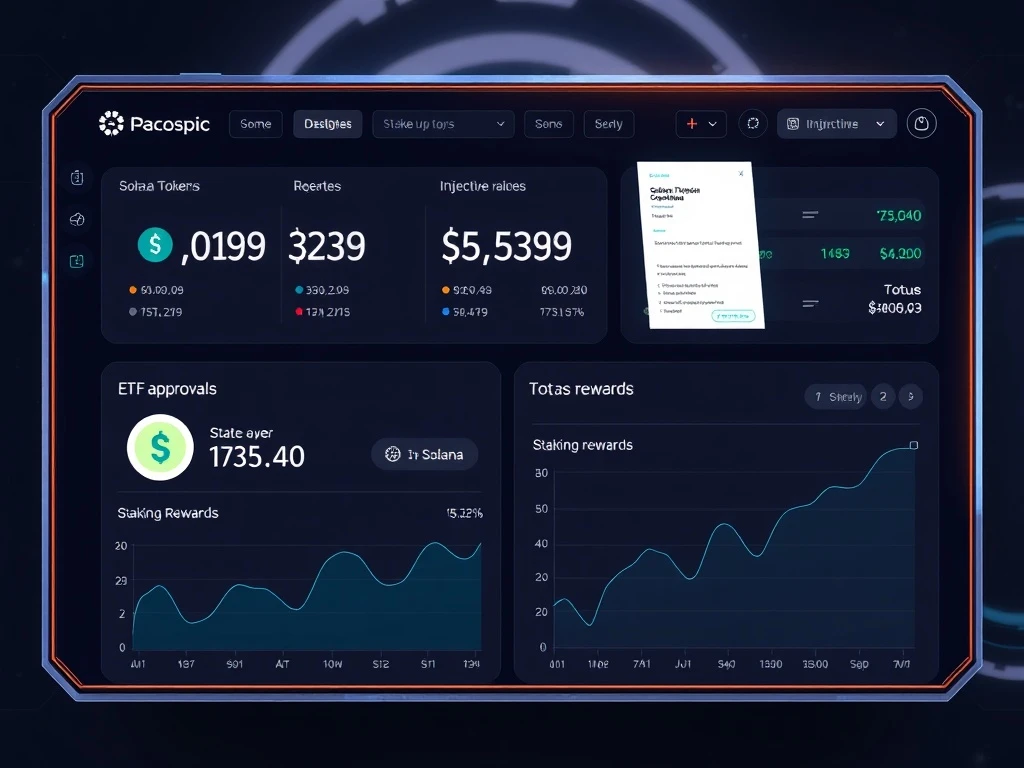Solana News: Cboe’s Bold Move for Staked Injective ETF Could Reshape Crypto Markets

In a groundbreaking development for the crypto world, the Chicago Board Options Exchange (Cboe) has filed for a staked Injective ETF, potentially marking the third U.S. staking fund after Solana and Ethereum. This move could revolutionize how investors engage with crypto staking and governance tokens.
What Does the Staked Injective ETF Mean for Crypto Investors?
The proposed ETF by Canary Capital aims to offer regulated exposure to Injective’s governance token (INJ) while generating staking rewards. Key benefits include:
- Structured passive income through staking
- Regulated access to Injective’s ecosystem
- Potential boost to INJ liquidity and visibility
SEC’s Evolving Stance on Crypto Staking
The SEC’s May 2025 clarification that staking doesn’t constitute a securities violation has opened doors for innovative products. However, the approval timeline remains cautious:
| Stage | Timeline |
|---|---|
| Initial Review | Up to 240 days |
| Potential Decision | By March 2026 |
| Response Window | 30-45 days after acknowledgment |
Market Implications of Crypto ETFs: Lessons from Solana and Ethereum
Historical performance shows mixed results for crypto ETFs:
- Bitcoin’s spot ETF drove prices above $50,000 in 2024
- Ethereum’s spot ETF saw a 38% price decline post-launch
- INJ currently trades at $15.10, down from its $52 peak
Why This Solana News Matters for the Broader Crypto Ecosystem
The staked Injective ETF represents growing institutional adoption. Success factors include:
- Market sentiment towards staking products
- Fund management strategies
- Regulatory clarity and oversight
As the crypto market evolves, this development could set important precedents for future staking-based investment vehicles. Investors should watch SEC developments closely while assessing INJ’s on-chain activity and market trends.
Frequently Asked Questions
What is a staked ETF?
A staked ETF allows investors to earn rewards by participating in blockchain validation while holding a tradable security.
How does this affect Solana investors?
Approval could validate staking mechanisms used by Solana and other proof-of-stake blockchains.
What risks come with staked ETFs?
Potential risks include regulatory changes, staking penalties, and crypto market volatility.
When might the SEC decide?
The review process could extend to March 2026, with possible earlier decisions.
How does this compare to Bitcoin ETFs?
Staked ETFs offer yield potential beyond price appreciation, but with additional complexity.









